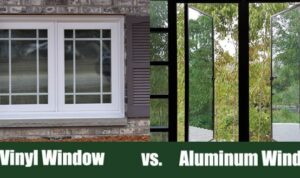Exploring the realm of home renovation financing options, this article delves into the various ways homeowners can finance their renovation projects. From personal loans to contractor financing, we cover it all in a detailed yet easy-to-understand manner.
Types of Home Renovation Financing Options

When it comes to financing home renovations, there are several options available to homeowners. Each type of financing has its own set of features and benefits, making it important to understand which option may be most suitable for your specific situation.
Personal Loans
Personal loans are a common choice for financing home renovations. These loans are unsecured, meaning they do not require collateral, and typically have fixed interest rates and repayment terms. Personal loans are best suited for smaller renovation projects where the cost is known upfront.
Home Equity Loans
Home equity loans allow homeowners to borrow against the equity in their home. These loans often have lower interest rates compared to personal loans because they are secured by the value of the property. Home equity loans are ideal for larger renovation projects where the costs may be higher and spread out over time.
HELOCs (Home Equity Line of Credit)
HELOCs also allow homeowners to borrow against the equity in their home, but they function more like a credit card with a revolving line of credit. Borrowers can withdraw funds as needed up to a certain limit and only pay interest on the amount they use.
HELOCs are suitable for ongoing or long-term renovation projects where costs may vary.
Contractor Financing
Some contractors offer financing options for their services, allowing homeowners to spread out the cost of renovations over time. While convenient, these financing options may come with higher interest rates or fees. Contractor financing is best for homeowners who need immediate renovations but may not have the funds readily available.Overall, the choice of financing option will depend on the size and scope of your renovation project, your budget, and your financial goals.
It's important to carefully consider each option and choose the one that best fits your needs.
Pros and Cons of Various Financing Methods

When it comes to financing home renovation projects, there are various methods available, each with its own set of advantages and disadvantages. Let's explore the pros and cons of using personal loans, home equity loans or HELOCs, and contractor financing options.
Personal Loans for Home Renovations
- Advantages:Personal loans offer flexibility in terms of loan amount and repayment period. They are unsecured, so you don't have to use your home as collateral.
- Disadvantages:Interest rates for personal loans can be higher compared to other financing options. Approval may also depend on your credit score.
Home Equity Loans or HELOCs for Financing Renovation Projects
- Advantages:Home equity loans and HELOCs typically have lower interest rates compared to personal loans. You can borrow a larger sum of money based on the equity in your home.
- Disadvantages:Your home serves as collateral, so there is a risk of losing your home if you default on the loan. Closing costs and fees may also apply.
Contractor Financing Options
- Advantages:Some contractors offer financing options that can make it easier to fund your renovation project. It can be a convenient way to get the work done without having to deal with a separate lender.
- Disadvantages:Contractor financing may come with higher interest rates or hidden fees. You may also have limited options in terms of loan terms and conditions.
Eligibility Criteria and Application Process
When considering different home renovation financing options, it is crucial to understand the eligibility criteria and application process for each. By knowing what is required and how to apply, you can streamline the process and increase your chances of securing the necessary funds for your renovation project.
Personal Loans
To be eligible for a personal loan for home renovation, lenders typically look at your credit score, income, and debt-to-income ratio. The application process involves filling out a loan application, providing documentation such as pay stubs and bank statements, and undergoing a credit check.
To improve your eligibility chances, work on improving your credit score and reducing your existing debt before applying.
Home Equity Loans
For a home equity loan, you need to have equity in your home, usually at least 15-20% of the home's value. The application process includes a home appraisal to determine the current value and the amount of equity available to borrow against.
Lenders will also consider your credit score, income, and debt-to-income ratio. To expedite the application process, gather all necessary documents beforehand and ensure your home is in good condition for the appraisal.
HELOCs
HELOCs also require equity in your home, with similar eligibility criteria as home equity loans. The application process involves filling out an application, undergoing a credit check, and providing documentation. The main difference is that HELOCs offer a revolving line of credit, allowing you to borrow as needed up to a certain limit.
Improving your credit score and reducing debt can increase your chances of approval.
Contractor Financing
Contractor financing may have less stringent eligibility requirements, as some contractors offer in-house financing options. The application process typically involves filling out a form with the contractor, who may have partnerships with lenders to secure financing for your project. While the process may be simpler, it's essential to review the terms and interest rates carefully before committing.
Interest Rates and Repayment Terms
When considering home renovation financing options, it is crucial to understand the interest rates and repayment terms associated with each choice. This information can greatly impact the overall cost and feasibility of your renovation project.
Interest Rates Calculation
- Personal Loans: Interest rates for personal loans are typically fixed and based on factors such as credit score, loan amount, and repayment term.
- Home Equity Loans: These loans usually have fixed interest rates that are determined by the lender and based on the borrower's equity in the home.
- HELOCs (Home Equity Line of Credit): HELOCs often have variable interest rates tied to the prime rate, which can fluctuate over time.
- Contractor Financing: Interest rates for contractor financing can vary depending on the contractor or financing company offering the loan.
Repayment Terms Comparison
- Personal Loans: Repayment terms for personal loans are typically fixed, with set monthly payments over a specified period.
- Home Equity Loans: These loans offer fixed repayment terms, usually with monthly installments over a set period of time.
- HELOCs (Home Equity Line of Credit): Repayment terms for HELOCs can vary, with flexible payment options and the ability to borrow and repay funds as needed during the draw period.
- Contractor Financing: Repayment terms for contractor financing may vary, offering flexibility based on the agreement between the contractor and the borrower.
It's essential to carefully review and compare the interest rates and repayment terms of each financing option to determine the most cost-effective and manageable choice for your home renovation project.
Last Point
In conclusion, choosing the best financing option for your home renovation is a crucial decision that requires careful consideration. By weighing the pros and cons, understanding eligibility criteria, and comparing interest rates, you can make an informed choice that suits your financial needs.
Key Questions Answered
What are the typical eligibility requirements for home equity loans?
Eligibility for home equity loans usually depends on having a certain amount of equity in your home, a good credit score, and a stable income.
How are interest rates calculated for personal loans?
Interest rates for personal loans are typically determined based on your credit score, loan amount, and the loan term.
What are some strategies for managing interest rates on financing options?
One strategy is to improve your credit score before applying for a loan, as a higher credit score can lead to lower interest rates. Additionally, comparing offers from different lenders can help you find the best rate.









